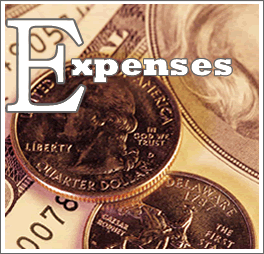Hidden Expenses For Rental Properties
 People purchase investment property with the intent of making money every year but that is not always the case. Every rental has fixed expenses which include taxes, insurance, and mortgage. Hidden expenses on the other hand are not always thought about when investors purchase rental property.
People purchase investment property with the intent of making money every year but that is not always the case. Every rental has fixed expenses which include taxes, insurance, and mortgage. Hidden expenses on the other hand are not always thought about when investors purchase rental property.
SUMP PUMP
People purchase insurance to protect their home from unexpected cost but insurance typically only covers physical damage to the house caused by weather. If the basement is finished or the house is a split level, it is a good idea to purchase sump pump insurance since sump pump failure is very common.
TENANT DAMAGE
Very few insurance policies cover damage to the property caused by tenants. Typically damage done by tenants is unintentional and pets are usually the culprits. It is a good idea to get a pet deposit for any animals that the tenants have. Pet interviews are vital and the best place to do that is the property the renters are currently living in, it is a very good indicator to see how they will treat and care for your property. It is common to have potential renters to put on the application that they don’t have pets but when the property visit is done, you see Fido in their backyard. Sometimes they will have their pet stay at another house for the interview but keep your eyes open for things like kennels, water bowls, or leashes.
TENANT VACANCY
Another unexpected expense is vacancy. This can be caused by having to evict a tenant or having a tenant move. It is a good idea to set the rent price $100 less than the market so that you have a large interest in the property. You will be able to be very selective when you have 15-20 people interested. Vacancy is also cause by tenants moving to other properties. It is a good idea to communicate with any potential tenants that the property can be shown to new applicants two to three months before the end of their lease. This decreases vacancy drastically and the property will only be vacant during the cleaning process for the new tenants to come in.
PEST CONTROL
A rarely thought about hidden expense is pest control. Keeping the investment free of rodents, spiders, and other insects is important if you want to keep your tenants happy. The last thing you want is a tenant bugging you about bugs (bad joke I know) and then moving since they can’t sleep at night. A standard contract for a pest control company is treatment every two to three months. The cost varies for treatment but it will easily add about a thousand dollars to your annual property expenses.
REPLACEMENT/REPAIR
The most common hidden expenses include HVAC replacement/repair, appliance replacement/repair, and plumbing expenses. Rental properties age so it is a good idea to keep them in good working condition by keeping the outside and exterior maintained. Keeping up with painting and caulking goes a long way to keep replacement of windows and siding down. It is also a good idea to keep landscaping up and keeping trees from growing too close to the house. Branches on the roof can cause shingles to deteriorate quickly and foundation repair is not cheap if roots start growing into the house.
CONVENIENCE
Hidden expenses and problems seem to happen at the most inconvenient times like when the owner is on vacation or when the owner is with family on Thanksgiving or Christmas. That is why it is important to have a plan for dealing with surprises. This can be accomplished by hiring a good property manager. A good property manager will charge 10-15% of the gross rent. Make sure to talk with the property manager about how “surprises” are handled and who has to take the call and make the necessary arrangements. It is a good idea to set a monetary amount for when you have to be contacted to make decisions.
SUMMARY
Rental properties are great but you should also consider alternative passive investment opportunities like private loans secured by real estate and insurance. Typically there are no costs at all to the lender and interest rates can be double digits. If you are considering purchasing rental property, make sure you have a slush fund set up for unexpected and hidden costs. It is also a good idea to make sure that the amount you cash flow on a property is a true representation of all costs associated with the property.
|
Name *
|
|
|
Email *
|
|